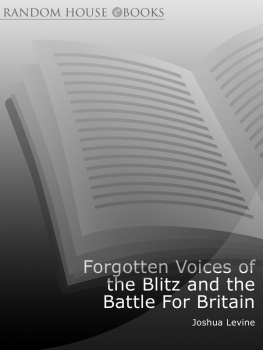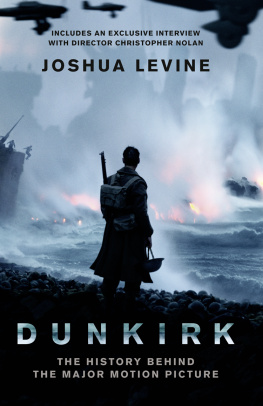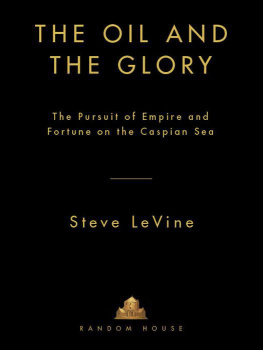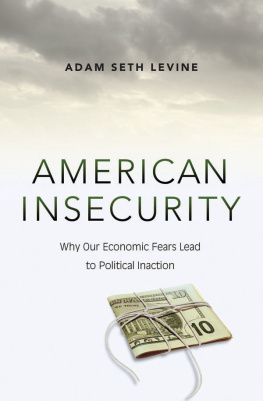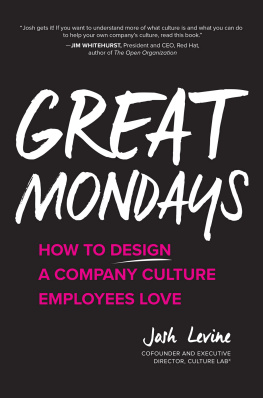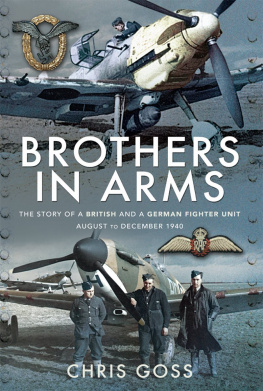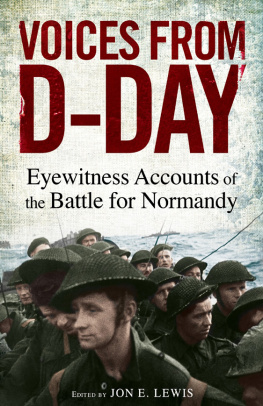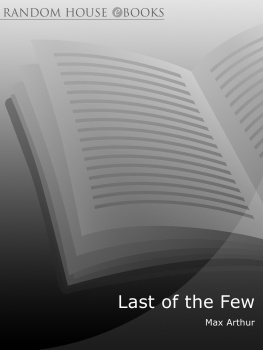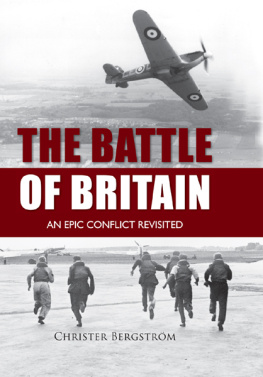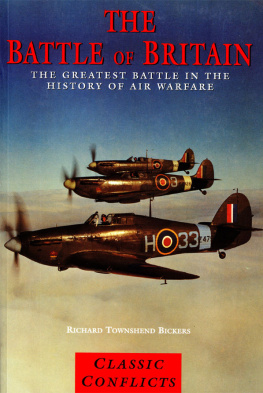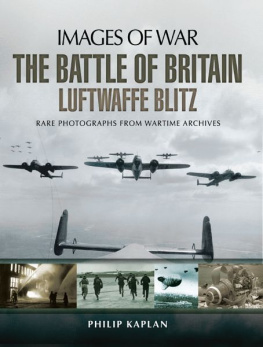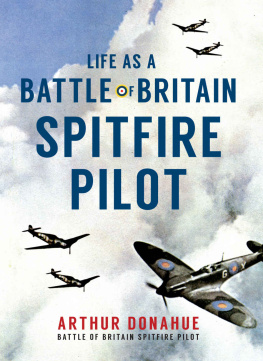FORGOTTEN
VOICES
OF THE
BLITZ AND
THE BATTLE FOR BRITAIN
IN ASSOCIATION WITH THE
IMPERIAL WAR MUSEUM
JOSHUA LEVINE

This eBook is copyright material and must not be copied, reproduced, transferred, distributed, leased, licensed or publicly performed or used in any way except as specifically permitted in writing by the publishers, as allowed under the terms and conditions under which it was purchased or as strictly permitted by applicable copyright law. Any unauthorised distribution or use of this text may be a direct infringement of the authors and publishers rights and those responsible may be liable in law accordingly.
Version 1.0
Epub ISBN 9781409034087
www.randomhouse.co.uk
First published in Great Britain 2006
1 3 5 7 9 10 8 6 4 2
Introduction Peter Ackroyd 2006
Text Joshua Levine and the Imperial War Museum 2006
Photographs Imperial War Museum 2006
Additional material taken from What Has Become of Us? Channel 4/Wide Vision Productions Ltd
Joshua Levine has asserted his right to be identified as the author of this work under the Copyright, Designs and Patents Act 1988.
All rights reserved. No part of this publication may be reproduced, stored in a retrieval system, or transmitted in any form or by any means, electronic, mechanical, photocopying, recording or otherwise without the prior permission of the copyright owners.
Ebury Press, an imprint of Ebury Publishing.
Random House, 20 Vauxhall Bridge Road, London SW1V 2SA
Random House Australia (Pty) Limited
20 Alfred Street, Milsons Point, Sydney, New South Wales 2061, Australia
Random House New Zealand Limited
18 Poland Road, Glenfield, Auckland 10, New Zealand
Random House (Pty) Limited
Isle of Houghton, Corner of Boundary Road and Carse OGowrie, Houghton, 2198,
South Africa
Random House Publishers India Private Limited
301 World Trade Tower, Hotel Intercontinental Grand Complex, Barakhamba Lane,
New Delhi 110 001, India
The Random House Group Limited Reg. No. 954009
www.randomhouse.co.uk
A CIP catalogue record for this book is available from the British Library.
Hardback:
ISBN 9780091910037 (after Jan 2007)
ISBN 009191003X
Paperback:
ISBN 970091914509 (after Jan 2007)
ISBN 0091914507
Contents
For my father, a child of the Blitz.
Authors Preface
On the night of May 8, 1945, Winston Churchill stood on a balcony overlooking Whitehall and addressed the crowd below. Britain and her allies had just secured victory over the Nazis in Europe and Churchill spoke briefly of the continuing war in the Far East. Before long, however, he began speaking of an earlier period of the war; a period experienced by every member of the crowd; a period when Britain stood on the brink of defeat. As he looked down at his fellow citizens, Churchill declared:
We were left all alone against the most tremendous military power that has been seen. We were all alone for a whole year. There we stood, alone. Did anyone want to give in? Were we down-hearted? The lights went out and the bombs came down. But every man, woman and child in the country had no thought of quitting the struggle. So we came back after long months from the jaws of death, out of the mouth of hell, while all the world wondered.
Churchill was speaking of the period which began in early summer 1940 with the evacuation of the British Expeditionary Force from Dunkirk. A German invasion was expected and as the summer drew on, British civilians watched the Battle of Britain playing out in the skies above their heads. The Battle of Britain gave way to the Blitz which transformed the same civilians into front line soldiers. In the face of enormous odds, Britain survived and she did so without assistance from the Soviet Union, and only limited assistance from Europe and the United States. She had truly fought a battle for Britain.
This was a period during which the British people experienced much that was new. They were not accustomed to fearing for their liberty or independence. They could never have imagined a relentless aerial bombardment on the scale of the Blitz. Nor had they experienced the social integration brought about by the shared struggle. The story of this extraordinary, intense period is told in this book by the men, women and children who were there.
When great events are viewed through the eyes of the participants, the events are no longer made up of dry fact and statistical detail. They are returned to the human level. Nor are they simplified to suit a historians thesis. Life, after all, is rarely black and white. Memories and interpretations differ. In a criminal trial, truthful witnesses to the same event will give varying accounts. In the following pages, you will read some accounts that complement each other, some that vary and a few which are baldly contradictory. In other words, real life will be placed before you.
I have attempted to structure the accounts into a narrative which tells the story of the period. The interviewees are of all ages, both sexes and many nationalities. They are predominantly British as one might expect but there are many German accounts, particularly relating to the Battle of Britain and there are interviewees from India, Jamaica, New Zealand, Canada, South Africa, the United States and Poland amongst others. The stories range across the emotions. They are funny, joyful, angry and tragic. They are commonplace and bizarre. They tell of fear, courage, hatred and forgiveness. William Strachans story of attempting to reach Britain from Jamaica in order to fight for the mother country, will first amuse you and then anger you. Ballard Berkeleys account of the bombing of the Caf de Paris nightclub paints a picture of chilling clarity. Cyril Bamberger will teach you patiently how to fly a Spitfire.
Many of the individuals who feature in this book are no longer with us. As I write these words, I see that George Grumpy Unwin has just passed away. In the pages that follow, you will encounter men and women, now gone, recalling their days as vital and passionate people in the prime of life. We owe a great debt to these pilots, firemen, WAAFs, bomb disposal men, air raid wardens, Home Guards, ambulance drivers, soldiers, civilians and others besides. Many of their contemporaries did not survive their youth. As Churchill drew his speech to a close on that night in May 1945, he remembered their sacrifice:
I say that in the long years to come not only will the people of this island but of the world, wherever the bird of freedom chirps in human hearts, look back to what weve done and they will say Do not despair, do not yield to violence and tyranny, march straightforward and die if need be unconquered.
Read these stories, look back to what they did and reach your own conclusions.
Joshua Levine, July 2006
Acknowledgements
Above all, I would like to thank everybody at the Imperial War Museum Sound Archive. Margaret Brooks, Peter Hart, Richard McDonough, John Stopford-Pickering, Richard Hughes and Rob White have all been more helpful than I had any right to expect. Over many months, their assistance, enthusiasm and support have made the writing of this book an utter pleasure. The Sound Archive was set up in 1972 and holds over 33,000 hours of recorded interviews. It is and ought to be recognised as a national treasure. In the photographic department, I would like to thank Rose Gerrard and Dave Parry. Terry Charman, the Museums historian, read through the text and offered some very wise advice as did Peter Hart. My thanks go to Elizabeth Bowers and Gemma Maclagan. The good humour and efficiency of Paul Fountain, Paul Strange, Kiran Patel, Leslie Lee and Jason Strange have been greatly appreciated.

